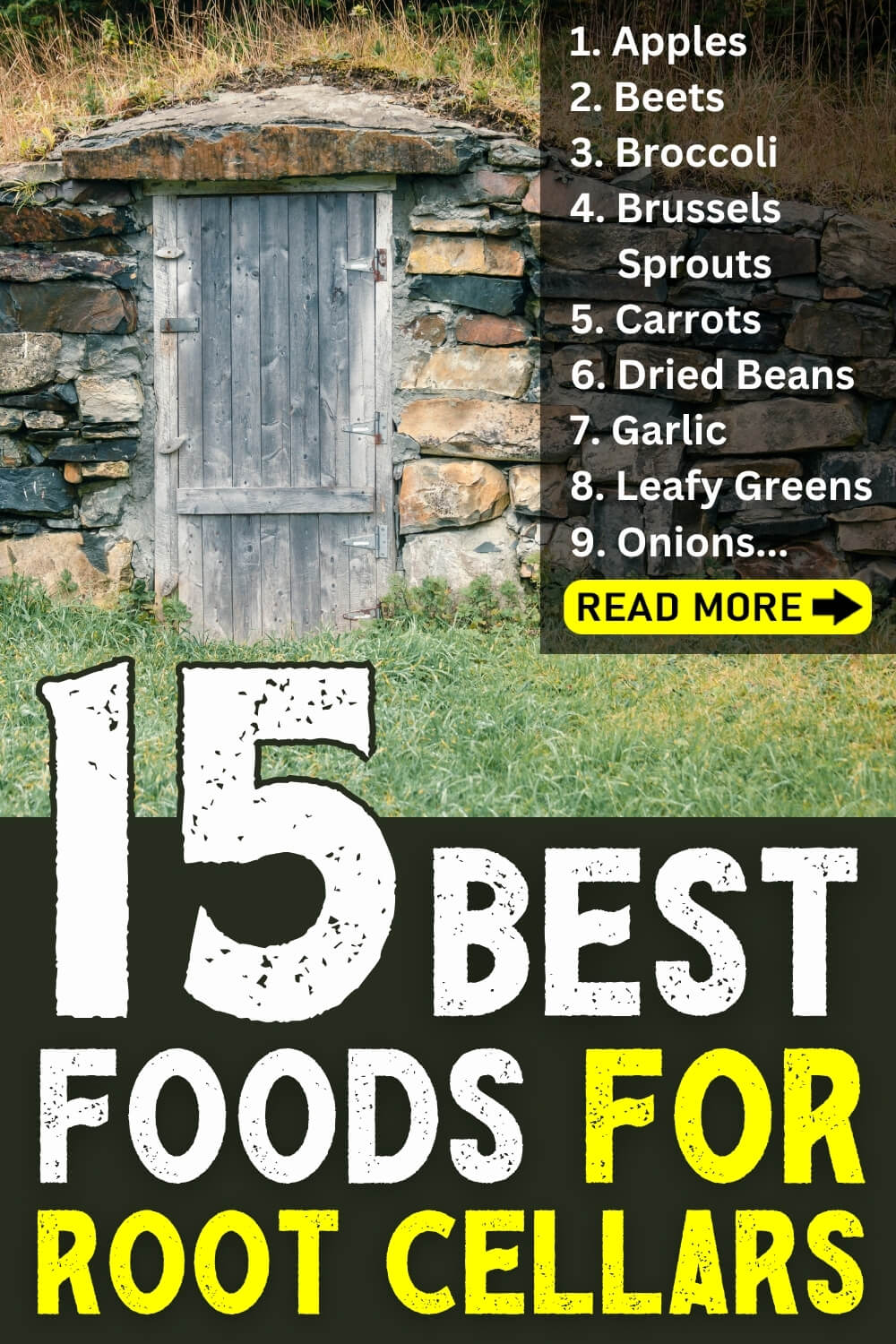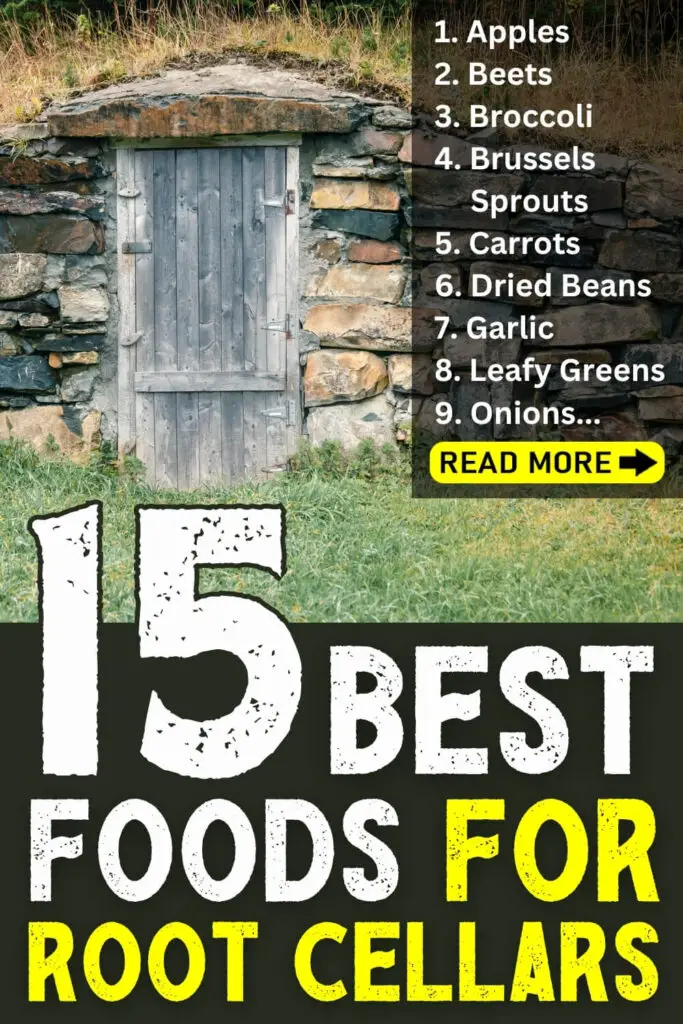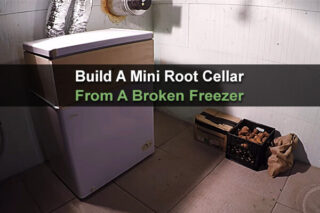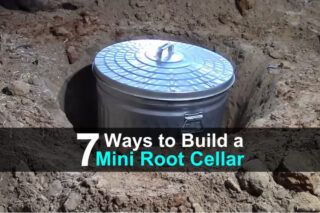Estimated reading time: 10 minutes
Root cellars are one of the best ways to store food, whether you're a prepper or a homesteader. One of the reasons they're so great is that they're able to keep a pretty constant temperature year-round.
During the summer, well-insulated root cellars will stay cool even when it's really hot outside. And during the winter, they will stay above freezing even during a blizzard. By staying away from those temperature extremes, they're able to keep food fresh for months.
Since colonial times, farmers have used root cellars to preserve the crops they harvest. However, since root cellars are relatively simple to build and require no electricity, they are also an excellent option for modern-day disaster preparedness and homesteading.
While some foods are perfect for storing in root cellars, some foods aren't. Below are 15 foods that do well when in root cellars. Plant these foods in your survival garden, build a root cellar to store them in, and you can enjoy the fruits of your harvest year-round.
Want to save this post for later? Click Here to Pin It On Pinterest!
Apples

Compared to most fruit, apples store quite well, especially when kept in a root cellar. It’s best, however, to stick to tart varieties of apples as opposed to sweet varieties if you want them to keep for as long as possible.
Wrap each individual apple in newspaper and place them in a cardboard or wooden box inside your root cellar. When stored in this manner, apples will last two to seven months, depending on the specific variety of apple that you are storing.
Beets

Like other tubers, beets store well in a root cellar. Start by cutting the greens off of the beet about one inch above the tuber. However, be sure to leave the root at the bottom of the beet intact. Next, store the beets in a plastic container that is layered with moist sand or peat moss.
You’ll also want to make sure that there is sand or peat separating each individual beet, as the beets will spoil faster if they are touching one another.
Broccoli

Broccoli isn’t known for lasting very long, but when stored correctly in a root cellar, you can get decent shelf life out of your broccoli plants. Trim your broccoli and store it either in mesh or perforated plastic.
You’ll also want to be careful to store broccoli away from any other fruits and vegetables in your root cellar as broccoli gives off an ethylene gas which can hasten the spoilage of nearby foods.
Brussels Sprouts
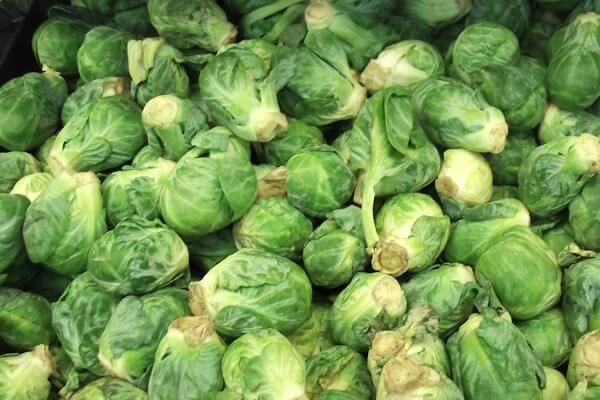
Unlike many vegetables, brussels sprouts are best harvested after several frosts. In spite of the vegetable’s ability to survive the cold, brussels sprouts still won't last very long after harvest if they aren't stored correctly.
The best way to store brussels sprouts in your root cellar is to replant them. If this is not an option, you can also hang your brussels sprouts upside down in the root cellar or place them in a perforated plastic bag.
Carrots

Like other root vegetables, carrots store very well in root cellars. First, you’ll want to cut off the fronds (leafy tops) of your carrots as they will draw out nutrients from the carrot during storage and reduce its shelf life. Next, place the carrots in a box and cover them either in moistened sand or moistened peat.
Dried Beans
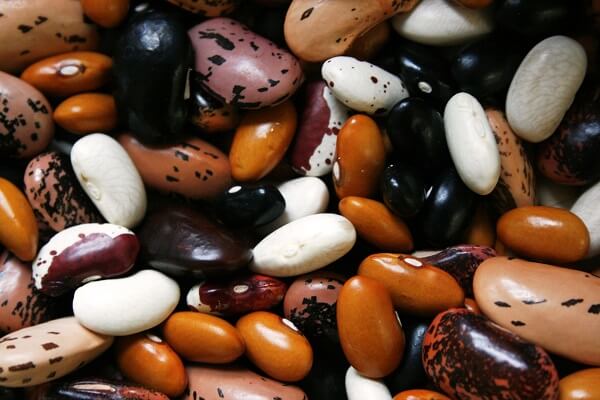
Dried beans have a long shelf life as it is, and when stored in a root cellar, that shelf life can be extended even further. Start by giving your beans time to mature on the plant until the beans are dry enough to rattle when shaken. Next, pull up the plant by the roots and store the entire plant in the shade for one to two weeks.
Shell the beans then freeze them for a few weeks to kill off any weevils that may be living in them. Lastly, place the beans in an airtight container and store them in your root cellar. When stored in this manner, dried beans can last several years.
Garlic

Garlic is similar to onions, and like onions, it also stores well in a root cellar. Garlic can be stored in the same way as onions – either replanted, placed in a vegetable rack, or covered with pantyhose or mesh.
Leafy Vegetables

Leafy vegetables such as kale, spinach, and cabbage all do well when stored in a root cellar. To preserve these vegetables for as long as possible, it’s best to harvest them with the roots still attached. The vegetables can then be replanted in the root cellar to maximize their life or they can be stored on a slatted shelf.
Check your leafy vegetables from time to time and remove any leaves that look like they are rotting in order to stave off spoilage for as long as possible.
Onions

Onions can last for a long time when stored in a root cellar, especially if you replant them or cover the bulbs in soil. Other options for storing onions in a root cellar include placing them on a vegetable storage wrack or wrapping the bulbs in pantyhose or a mesh bag.
Pears

Pears are sensitive to temperature but can be stored for two to three months when kept near freezing in a root cellar. To store pears in a root cellar, wrap each pear in newspaper then place them in a cardboard box that is lined with perforated plastic.
You’ll also want to be careful to only store pears that are unbruised and unblemished; otherwise, they may rot and spoil the whole box. Check your pears for rot from time to time, though keep in mind that if pears are exposed to temperatures above 80 degrees F, they may rot on the inside while looking unblemished on the outside.
Potatoes

Potatoes provide an excellent source of calories and carbohydrates. However, they can be difficult to store. In the wrong temperatures, potatoes will either rot, begin to sprout, or both.
They store best in an environment that hovers just above freezing, so depending on where you live, you may need to carefully time the harvest of your potatoes and then put them in the root cellar before it gets too cold outside. This method will ensure they last as long as possible.
It’s best to store potatoes in layers so you can check your potatoes for rot and remove potatoes that are rotting so they don't affect any of the potatoes around them. Since potatoes will sprout when exposed to light, it’s best to keep them completely in the dark, and you may also benefit from covering your potatoes with straw.
Pumpkins

When harvested before the first frost and stored in a root cellar, pumpkins can be stored without spoiling for five to six months. When harvesting your pumpkins for storage, though, it’s important to leave the stems of the pumpkin intact as they will spoil much faster without them.
You’ll also want to cure your pumpkins for 10 days at about 80 degrees F before placing them in your root cellar.
Rutabagas
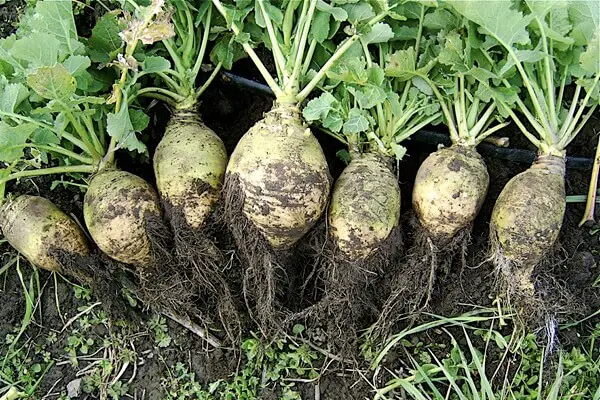
Rutabagas are a hardy root vegetable that stores very well in root cellars. After harvest, cut off the leafy tops, leave about a half‑inch of stem, and store the roots in moist sand or peat at just above freezing with high humidity. Under the right conditions they can last 4‑6 months or longer.
Tomatoes

Ripe tomatoes do not have a long shelf life no matter how they are stored. However, if you harvest your tomatoes before they are ripe and allow them to ripen in storage, they can last several months under the right conditions.
For best results, pull up the entire vine while the tomatoes are still green and hang the vine upside down in your root cellar. You can also pick the tomatoes while they are still green and wrap them in newspaper before placing them in your root cellar.
Turnips
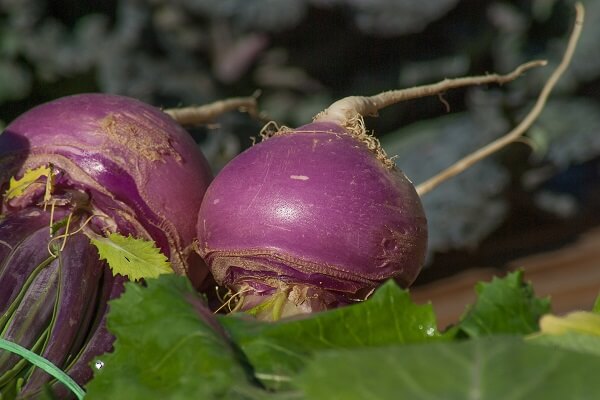
Turnips can be stored in your root cellar in the same manner as carrots – with the fronds removed and covered in moistened sand or peat – though with turnips it is especially important to keep them moist, so lightly wet the soil covering your turnips periodically.
Like this post? Don't Forget to Pin It On Pinterest!
You May Also Like:

